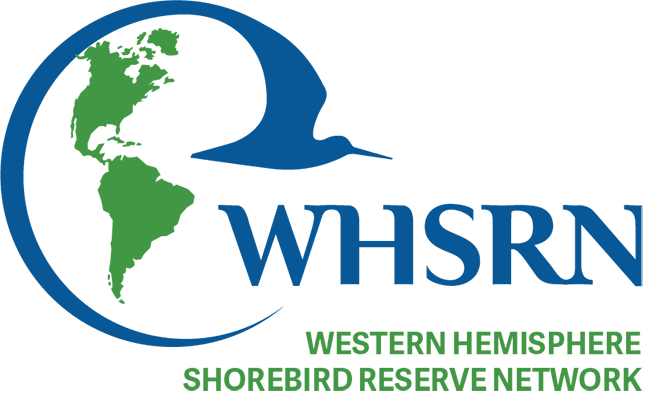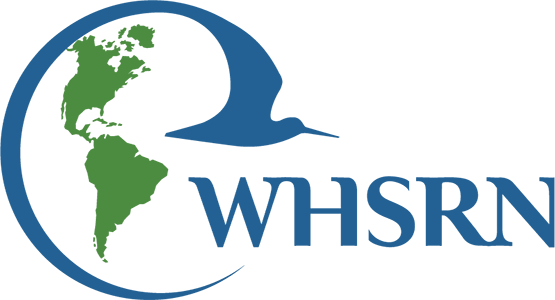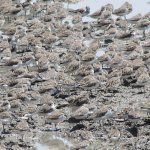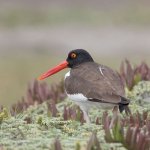The Gulf of Fonseca, shared by El Salvador, Honduras, and Nicaragua, has been identified as a site of international importance for supporting significant biogeographic populations of several species of shorebirds. It is home to a mosaic of natural and human-made habitats that are key roosting and feeding areas for shorebirds during both migration and the non-breeding season; at least 50,000 hectares (~123,550 acres) of these are dedicated to shrimp and salt production. In certain moments of the production cycle, both ponds and dykes are used by birds as alternative, albeit ephemeral, roosting and feeding sites, making it a priority to work hand in hand with producers and local stakeholders to find management alternatives and shorebird-friendly practices.
In November 2019, Diego Luna Quevedo and Salvadora Morales, Conservation Specialists with the WHSRN Executive Office, traveled through three countries around the Gulf of Fonseca to conduct a series of meetings and workshops with shrimp and salt producers and other key stakeholders. They also took advantage of the opportunity to visit important shorebird conservation sites in the region.
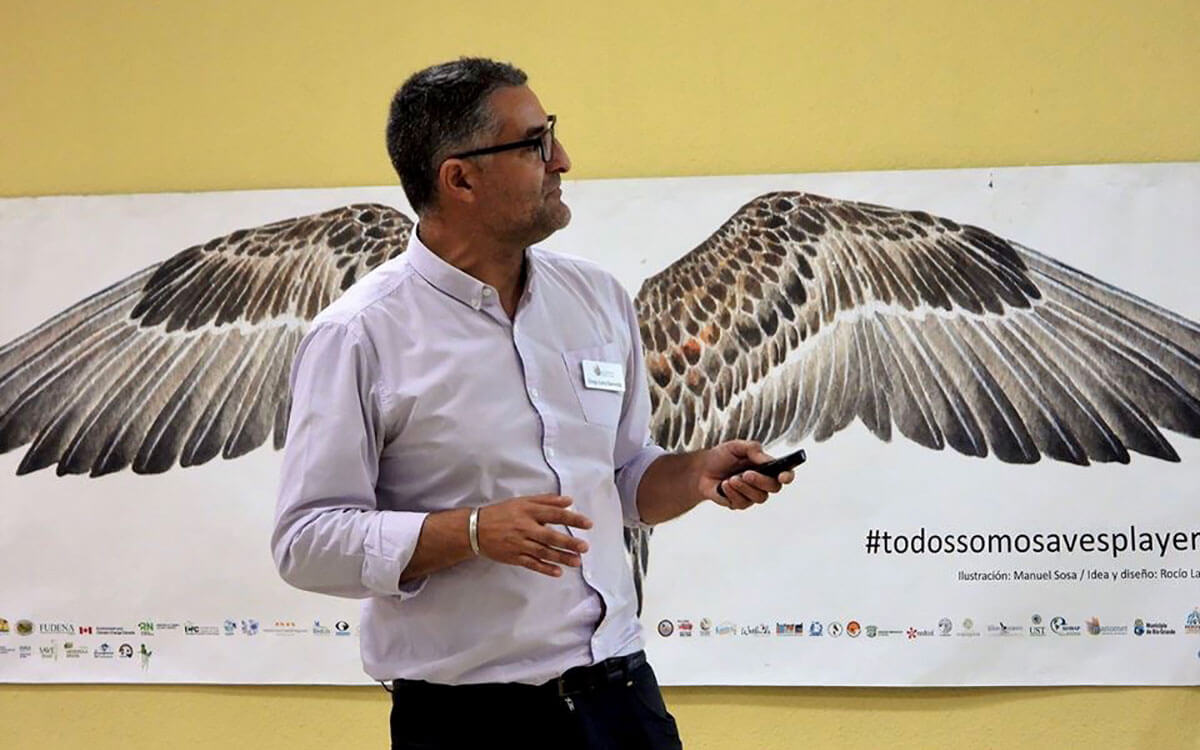
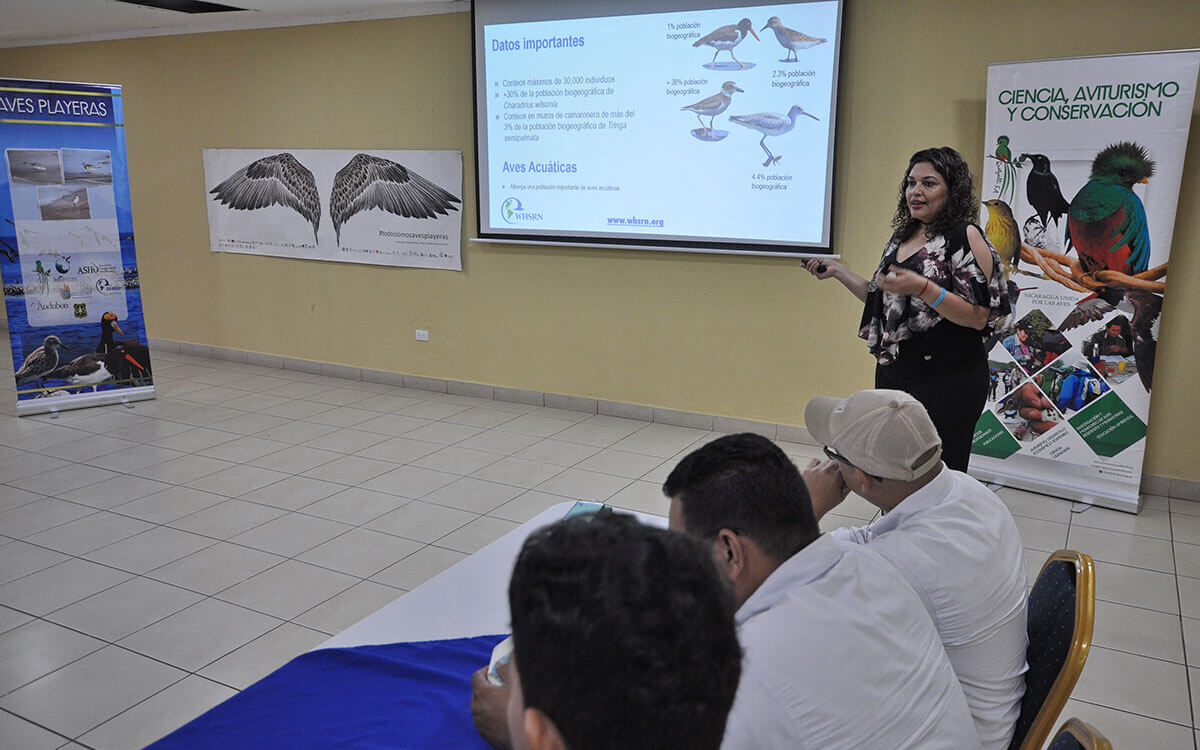
Left: Diego Luna Quevedo facilitates during the workshop in Nicaragua. Photo: Salvadora Morales. Right: Salvadora Morales presents at the workshop in Nicaragua. Photo: Diego Luna Quevedo.
In Nicaragua, with the support of local partners, Quetzalli Nicaragua and the shrimp company SEAJOY organized the workshop Building Alliances for Shorebird Conservation in Shrimp Production Areas. The goal of the workshop was to generate access to information about the important role shrimp farms can play in shorebird conservation, identify shared benefits between productive development and conservation, as well as promote good management practices in shrimp farming. A total of 29 people participated from 10 businesses and government institutions. Among them were Grupo SEAJOY, the Camaronera de Nicaragua S.A., the Playa Hermosa Cooperative, Sahlman Seafoods, Aquamar, representatives of the Environmental Unit of the municipalities of Tonalá, El Viejo, and the National Autonomous University of Nicaragua (UNAN by its Spanish acronym). Participants evaluated strengths, opportunities, weaknesses, and threats, and then identified the types and sectors for possible alliances and collaborations. This was put together into an action plan that is expected to be implemented by the business community and local actors between 2020 and 2022. The main actions in the plan are focused on research and monitoring and management and best practices, as well as working to build some of the potential alliances that were proposed during the workshop.
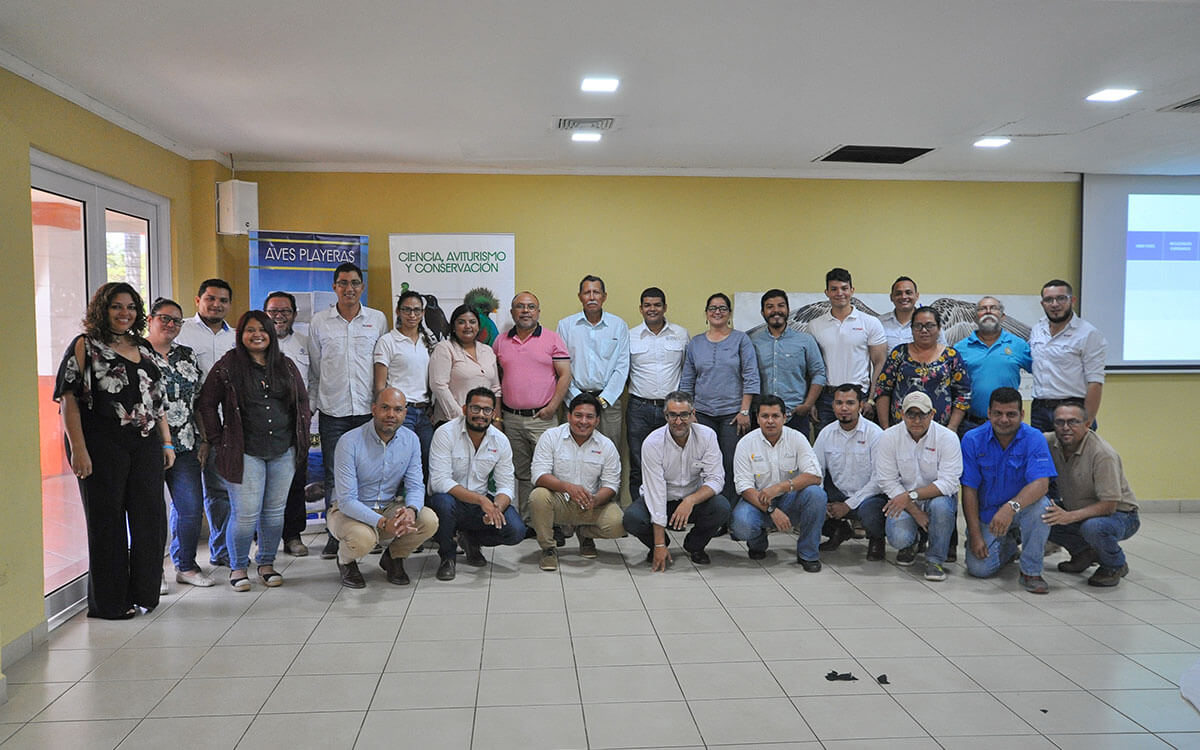
Participants in the Nicaragua workshop. Photo courtesy of Quetzalli Nicaragua.
SEAJOY helped organize another workshop in Honduras, along with the Forest Conservation Institute (ICF by its Spanish acronym), the Honduran Ornithological Society, and Santa Alejandra Salt Works. 28 people participated in this workshop, from the companies Grupo Litoral, Granjas Marinas, Rivermar, El Faro, and Milcien, in addition to two representatives from the salt industry. The objective of this workshop was to promote best management practices for the cultivation of shrimp and salt, as well as to discuss a conceptual framework that can be applied to the conservation of shorebirds and their habitats in Honduras. The group’s worked together during the workshop to articulate their vision of success for shorebird conservation: to “Maintain and improve existing shorebird habitats and, by 2030, for shrimp and salt production processes to be using best practices for conservation.”
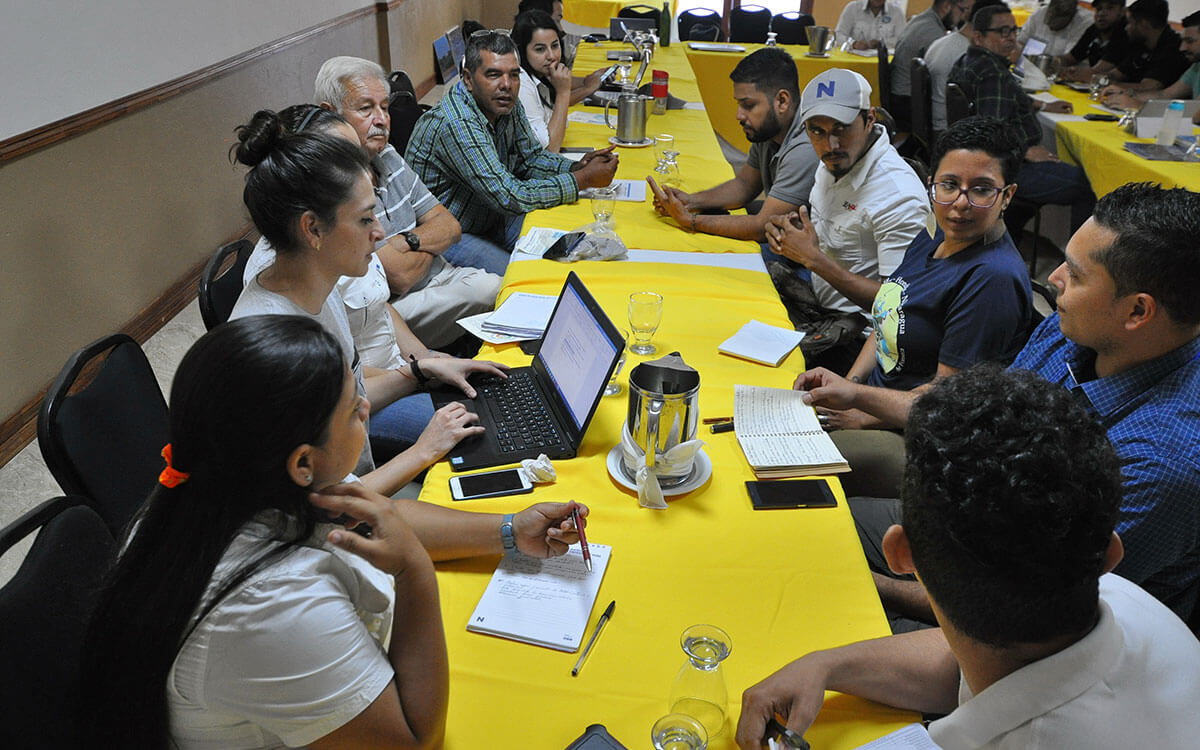
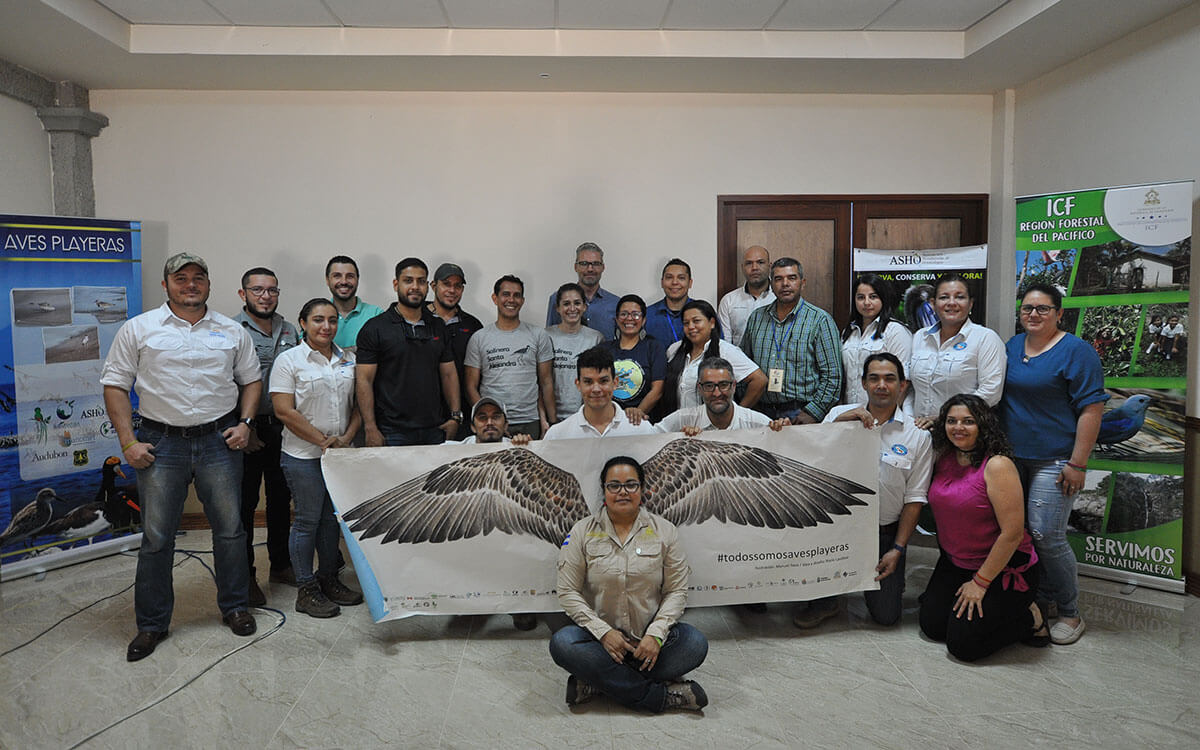
Left: Group breakout session during the workshop in Honduras. Photo: Diego Luna Quevedo. Right: Participants in the Honduras workshop. Photo courtesy of Quetzalli Nicaragua.
The participants in the Honduras workshop identified three minimum outcomes needed to reach this vision: 1) nominate important sites in Honduras to join the Western Hemisphere Shorebird Reserve Network, 2) strengthen shorebird monitoring, and 3) develop a best practices manual for salt and shrimp farms. Raising awareness, building partnerships, and identifying new sites for information gathering were also identified as possible actions. The primary challenges the group envisions going forward include the standardization of production processes and environmental regulations, lack of stakeholder knowledge about shorebirds, commitment from institutions and key actors, and facilities for access to sites of interest.
In El Salvador, with the support of SalvaNatura and the Goascorán Watershed project, a conversation was held on the “Challenges for the Conservation of Shorebirds in El Salvador.” The primary objective was to create a space for open discussion about sites, species, and the main needs and conservation challenges for shorebirds in the country. The conversation began with four presentations that contextualized the challenges for shorebird conservation. The discussion was then opened up during a plenary session to identify important shorebird sites and species, threats that exist at these sites, and the organizations that can support shorebird conservation in El Salvador. Some actions were also proposed, such as promoting applied research, strengthening and enforcing environmental legislation, environmental education and training, and other actions that contribute to the conservation of shorebird habitats. In addition, the WHSRN Executive Office team met with El Salvador’s Vice Minister of Environment and Natural Resources, Alex Hasbun, to coordinate collaborative work for the conservation of shorebirds and their habitats in the country.
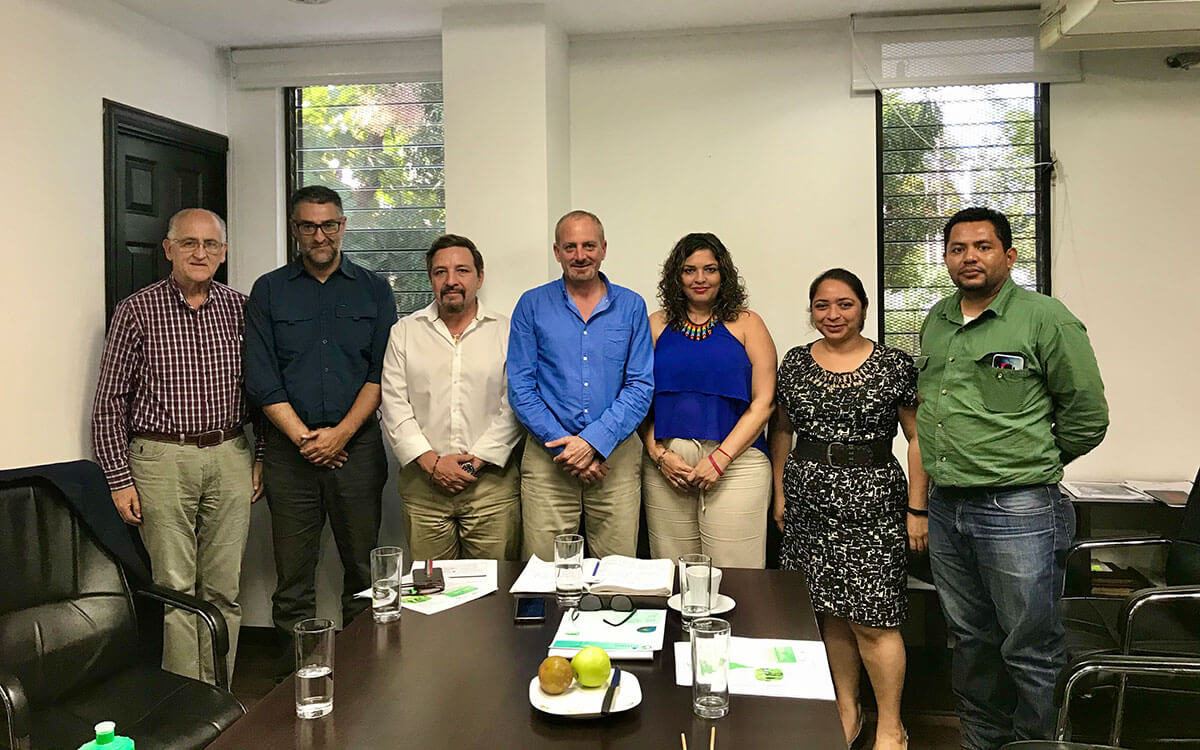
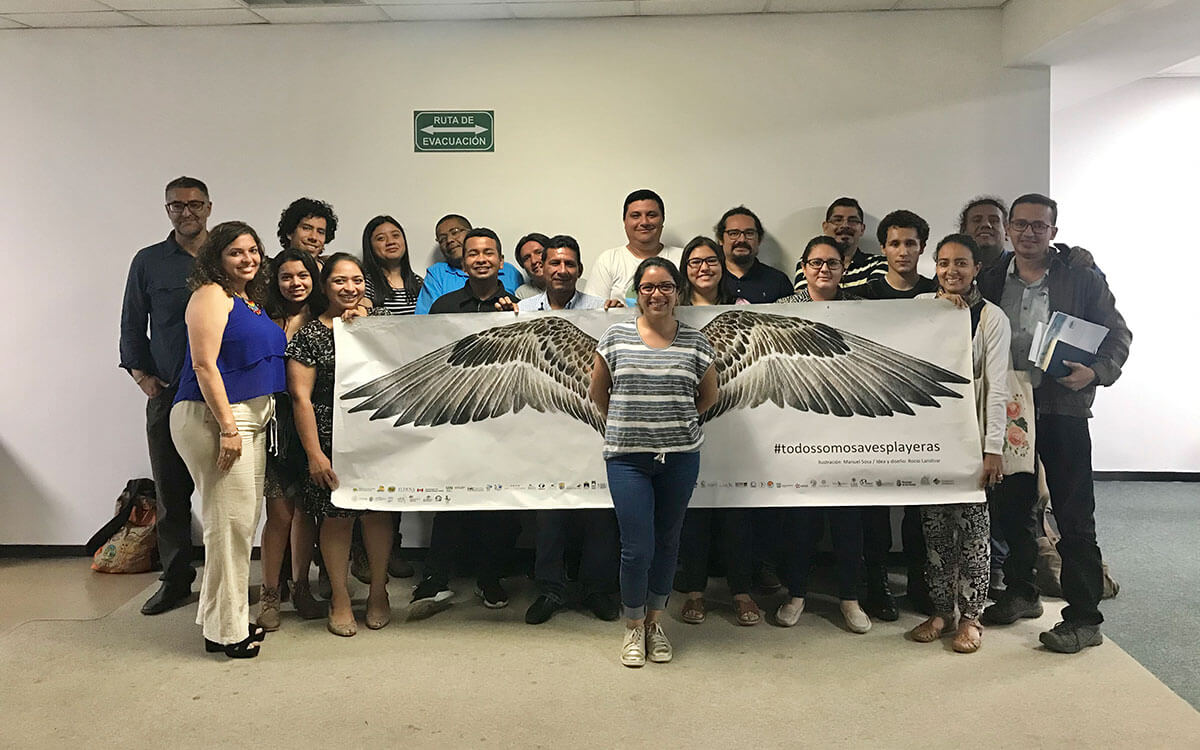
Left: The WHSRN team met with El Salvador’s Vice Minister of the Environment and Natural Resources, Alex Hasbun. Photo: Erika Reyes. Right: Participants from the discussion in El Salvador. Photo courtesy of Quetzalli Nicaragua.
The WHSRN Executive Office and the partners in all three countries that participated in these workshops are committed to implementing actions to protect and manage critical sites and advance shorebird-friendly practices for both shrimp farming and salt production – practices that generate benefits and shared value for both productive development and conservation.
For more information, please contact Salvadora Morales (smorales@manomet.org) or Diego Luna Quevedo (diego.luna@manomet.org).


